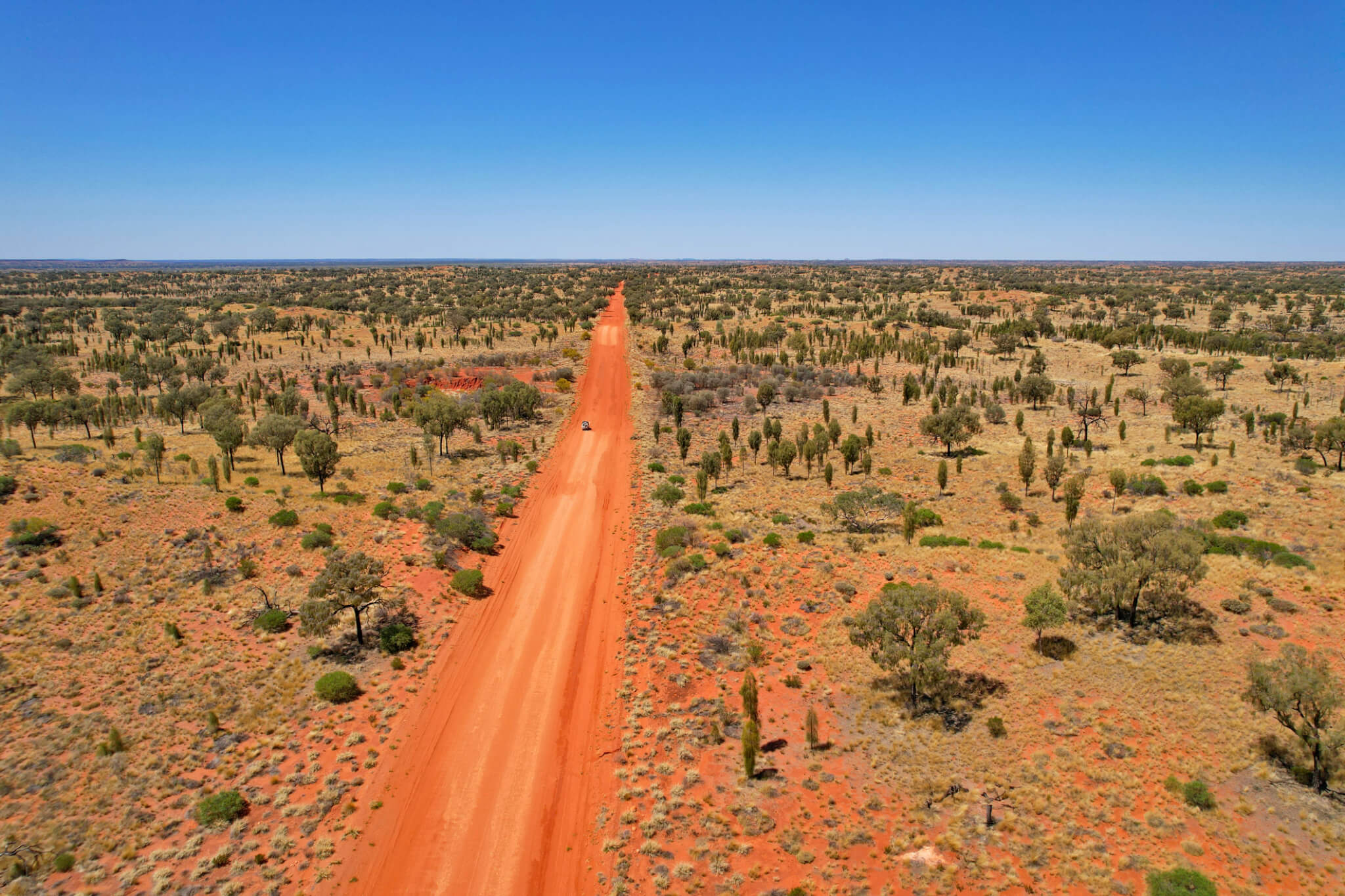The Northern Territory government has passed two new laws that together, hand extraordinary power to decision-makers.
Here’s what you need to know.
The NT government has passed the Territory Coordinator Bill and the Petroleum, Planning and Water Amendment Bill – two new laws that remove crucial checks and balances, and make it even harder for communities to have a say in projects that impact land, water and climate.
These laws are a direct attack on environmental protections and public accountability.
Nature in the Northern Territory is already at breaking point
The NT’s landscapes, wildlife and waterways are already under immense pressure from climate change, land clearing, invasive species and resource extraction.
These new laws will have serious consequences for communities in the NT – and far beyond. They pave the way for massive expansions in fracking, land clearing, water extraction for cotton, gas pipelines and new mines, accelerating climate change, globally significant biodiversity loss and environmental destruction, with consequences for all of us.
Instead of addressing these crises, the NT government is weakening environmental protections and removing public oversight. These new laws will accelerate environmental decline at a time when stronger protections are needed more than ever.

“These laws concentrate power in the hands of a few, strip away accountability and silence community voices. This will lead to rushed, poor-quality decisions that fail people and the environment.”
The Territory Coordinator Bill 2025 – a law to override other laws
This Act creates a new role – the Territory Coordinator – with the explicit goal of “driving economic development” in the NT. To do that, the Act hands sweeping powers to the coordinator and the NT chief minister, allowing them to:
- Override existing laws – the Territory Coordinator can issue ‘exemption notices’ that exclude or modify the operation of NT legislation that would usually apply to projects. While there are some restrictions on when these can be issued, there is little to prevent overuse.
- Take over decision-making – the coordinator can issue ‘step-in notices,’ allowing them to replace the usual statutory decision-makers.
- Fast-track projects – the Territory Coordinator or minister can direct public authorities to prioritise certain projects.
- Avoid accountability – the Act limits appeal and review rights, blocking legal challenges to decisions made under the Territory Coordinator Act. It also attempts to remove review rights in other pieces of NT legislation.
This will apply to over 30 pieces of legislation, including the Water Act 1992, Environment Protection Act 2019, Planning Act 1999, Heritage Act 2011, Territory Parks and Wildlife Conservation Act 1976 and Pastoral Land Act 1992 – laws designed to safeguard the NT’s unique ecosystems and communities.
Critically, the bill originally stated it would not interfere with First Nations rights and cultural heritage protections (including the Heritage Act 2011), or agreements between the NT and Commonwealth (including bilateral agreements under national environment laws).
But these protections have now been removed, creating uncertainty and increasing the risk of unlawful interference with those rights and agreements.
The Act (as passed) also removed limitations on who can be appointed as Territory Coordinator – the original draft included a prohibition on those who have recently made political donations. This backflip further erodes public confidence in the independence of the Territory Coordinator.
As public interest lawyers, we know that handing a coordinator unchecked powers to prioritise economic development over existing laws undermines crucial planning processes and jeopardises the environment.
The Petroleum, Planning and Water Legislation Amendment Act 2025 – shutting the community out
This second law removes third-party merits review rights from planning, water and onshore oil and gas decisions.
Prior to the passage of this legislation, community members (such as landholders, native title holders) and environmental organisations could seek review of key government decisions – like granting petroleum exploration permits, approving environment management plans for oil and gas projects, or allowing large-scale land clearing or water extraction. These review rights ensure decision-makers follow the law and act in the public interest.
This Act eliminates those rights, resulting in:
- Weakened oversight – community groups and experts can no longer challenge approvals if they think that they don’t comply with the law.
- Less accountability – government decisions face less scrutiny, increasing the risk of poor or unlawful approvals.
- Eroded public confidence – removal of public review rights creates a system that appears stacked in favour of industry.
The NT government claims this Act ‘reduces project delays’ and prevents ‘vexatious legal reviews by third parties.’ However, the vast majority of merits review applications under NT planning laws are made by project proponents. The new legislation does not affect proponents’ rights to seek review.
In reality, third-party merits review plays a vital role in improving decision-making by ensuring environmental laws are properly applied. The ability to challenge incorrect decisions strengthens government accountability and public trust.
Why third-party merits review matters
There are two main ways to challenge a government decision:
- Judicial review – courts assess whether a decision was made lawfully (but not whether it was the right decision).
- Merits review – an independent tribunal reviews all the facts and decides what the correct and preferable decision should be.
Third-party merits review allows the community to challenge decisions that impact climate, land and water. The NT government is removing these rights from critical laws, including:
- Petroleum laws – removing review rights over key decisions, including the approval of exploration permits and environment management plans. The Pepper Inquiry into fracking in the NT specifically recommended including third-party merits review for petroleum projects – yet the government is ignoring this advice.
- Planning laws – eliminating community review of decisions to grant development permits. This could apply to large projects such as land clearing, industrial sites or major subdivisions.
- Water laws – stopping community appeals on water licensing decisions, including approvals to take water, interfere with waterways or drill bores.
This change means that even if an approval is unlawful or deeply flawed, communities and experts can’t seek merits review. The result? A system where decisions are more likely to favour big industry over people and the environment.
Why this matters
The NT is not just a battleground for remote communities and ecosystems – it’s the frontline of a wave of destructive projects that would have consequences for all Australians. What happens here, with these laws, will shape the future of our climate, water, and land far beyond the NT’s borders.
Together, these laws make it easier for governments and big business to sidestep environmental protections, override First Nations rights and shut the public out of decisions that shape the future of the NT’s land, water and climate.
These laws concentrate power in the hands of a few, strip away accountability and silence community voices. This will lead to rushed, poor-quality decisions that fail people and the environment.
No one should be above the law, and everyone should have the right to participate in decisions that shape our future. This includes the right to ask for scrutiny of projects that will damage our environment.
Access to justice is critically important to a healthy democracy, yet these news laws are deeply anti-democratic.
Stay informed
Follow us on Instagram, Bluesky and Facebook or sign up to our email list to stay in the loop.

Make a difference
The challenges we face are vast. The time to push for large-scale system change is now.




